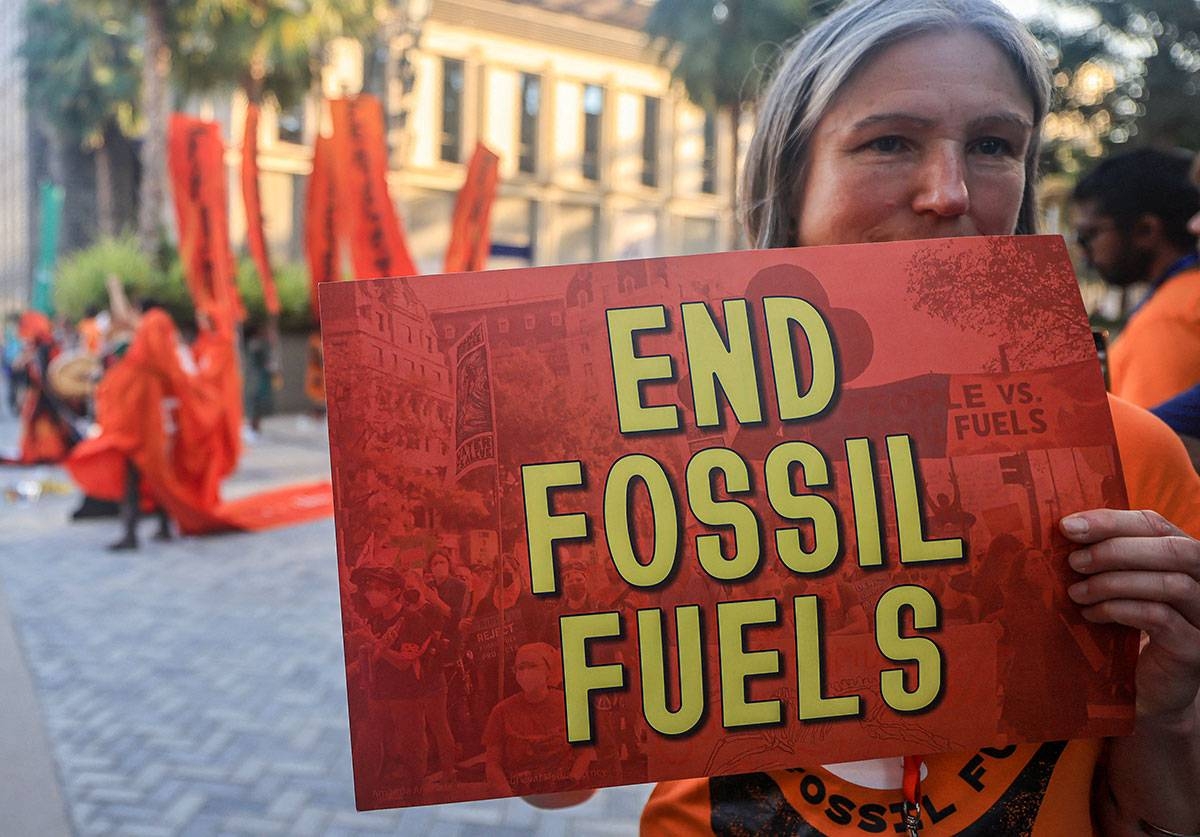The world is on the verge of crossing the crucial 1.5 Celsius global warming threshold, with scientists warning that this milestone could be reached within the next seven years. The rise in fossil fuel CO2 emissions continues to contribute to this alarming trend, prompting urgent calls for action on coal, oil, and gas pollution at the COP28 talks.
The UN climate summit in Dubai has become a battleground for the future of fossil fuels, as major polluters resist calls to phase out carbon-intensive energy sources responsible for the majority of human-caused greenhouse gas emissions. According to the annual assessment by the Global Carbon Project, fossil fuel CO2 pollution increased by 1.1 percent last year, with China and India emerging as the world’s largest emitters.
Scientists estimate that there is a 50 percent chance that global warming will exceed the goal set by the Paris Agreement, which aims to limit temperature rise to well below 2 degrees Celsius above pre-industrial levels and preferably to 1.5 degrees Celsius. However, uncertainties remain regarding the impact of non-CO2 greenhouse gases on warming. Lead author Pierre Friedlingstein from Exeter University’s Global Systems Institute emphasized the urgency of the situation, stating, “The time between now and 1.5 degrees is shrinking massively, so to keep a chance to stay below 1.5 C, or very close to 1.5 C, we need to act now.”
The need for action becomes even more critical as evidence suggests that exceeding the 1.5 degrees Celsius threshold could trigger irreversible and dangerous tipping points. The Intergovernmental Panel on Climate Change (IPCC) has stated that CO2 emissions must be halved this decade to stay within the 1.5 degrees Celsius limit. However, the Global Carbon Project’s findings indicate that achieving this target is becoming increasingly challenging as emissions continue to rise.
Glen Peters, a senior researcher at the Cicero Center for International Climate Research, highlighted the concerning trend of rising carbon dioxide emissions. He noted that emissions are now 6 percent higher than when the Paris Agreement was signed, stating, “Things are going in the wrong direction.” Despite the growth of renewable energy sources such as solar, wind, and electric vehicles, Peters emphasized that reducing fossil fuel emissions is equally crucial. He added, “And we’re simply not doing enough.”
While some major polluters, including the United States and the European Union, have seen a decrease in CO2 emissions this year, China, the largest emitter, is expected to experience a 4-percent rise in fossil fuel CO2 emissions. India has now surpassed the EU as the third-largest fossil fuel emitter due to a more than 8-percent increase in CO2 emissions. Both countries are struggling to meet the growing demand for power while simultaneously transitioning to renewable energy sources.
The research, published in the journal Earth System Science Data, underscores the urgency of the current situation. With the Earth already warming by 1.2 degrees Celsius, the planet has experienced devastating heatwaves, wildfires, floods, and storms. This year, temperatures have reached record highs, further highlighting the need for immediate action to curb global warming.
The international community must come together to address this critical issue. Governments, businesses, and individuals all have a role to play in reducing fossil fuel emissions and transitioning to sustainable energy sources. By taking decisive action now, we can still strive to prevent the catastrophic consequences of exceeding the 1.5 degrees Celsius global warming threshold.
Source: The Manila Times







